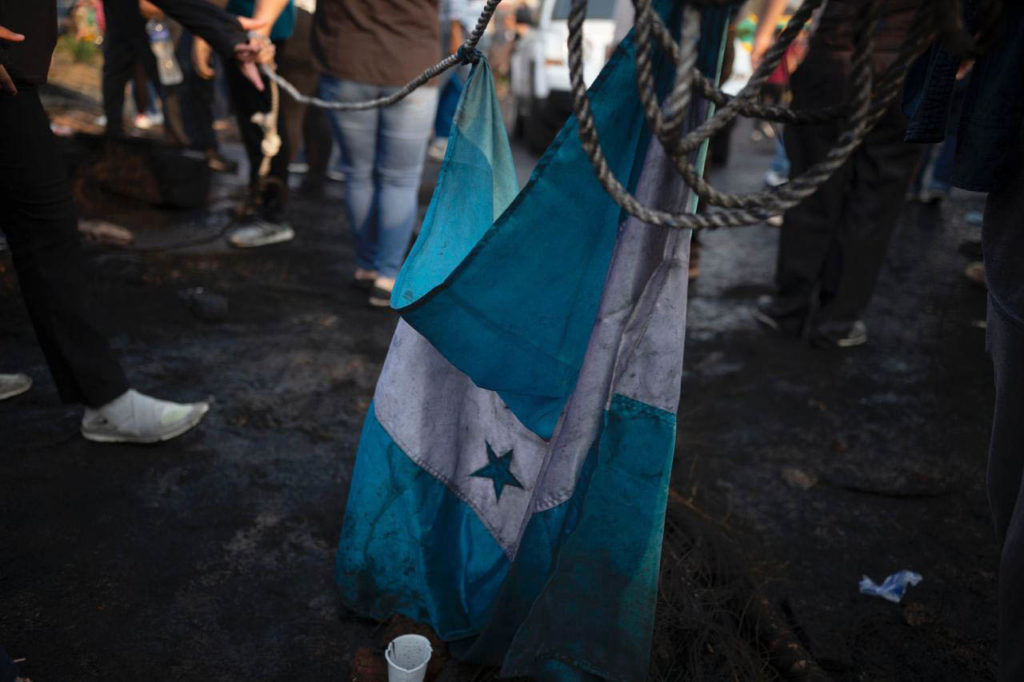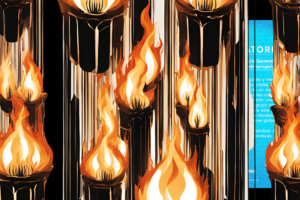Text: Contracorriente
Translation: José Rivera
English edit: Amy Patricia Morales
Hondurans euphorically relived celebrations of the November 2021 elections, which had the highest voter turnout in recent history, when former President Juan Orlando Hernández was apprehended in February 2022. Hernández was prosecuted in the U.S. and is now awaiting trial for drug trafficking charges. However, hope for a possible way out of a prolonged political crisis to a period of democratization quickly turned to frustration, a change that began in National Congress when the new administration took office.
There’s no doubt that the structural problems in Honduras demand decisive action. It’s clear by now that poverty, inequality, corruption, impunity and violence cannot be eliminated by mere rhetoric or welfare services but by long-term, concrete policies and through judicial reform geared toward accountability and political independence.
Democracy is not perfect and it’s not a utopia either. It’s an ongoing political and institutional process that relies on the will and agreement between politicians and key actors in society, who, despite their differences and disagreements, must deal with conflicts by adhering to democratic principles. It’s understood that politicians and key actors in society should understand and act in accordance with the fact that their legitimacy and popularity is contingent upon decisions that follow established rules, including transparency. And the population expects that institutions—not personalities or leaders who, sooner or later, act with total impunity—address their concerns.
This is where politicians have failed and continue to do so. Many of the problems Hondurans face are symptoms of a hidden cancer: an authoritarian culture enveloping the political elite that have consistently manipulated the law to their benefit to loot the country and concentrate power. This problem transcends ideology; whether right or left-leaning, those in power in Honduras strive to be “the smartest, the strongest and the quickest.”
The traditional political culture characterized by tough, loud, violent men who fanatically follow a leader manifests itself in warlords or “caudillos.” These leaders have adeptly utilized democratic institutions to legitimize their governance. Despite apparent transformations, the essence of the system remains largely unchanged.
Former President Juan Orlando Hernández was not only a caudillo but also a drug lord who left behind deep-rooted political practices like patronage, corruption, impunity and violence, which, though not new in politics, he leveraged to maintain an authoritarian regime for two terms.
Then, Libre, the ruling party, won the 2021 elections with a campaign that promised refoundation. Many believed that Libre would radically transform the dominant political culture both embedded in the State and society in order to construct a democratic society. However, that hasn’t been the case, and actions by Libre to impose their agenda of refoundation have taken place by force and legal distortions.
Weights and balances are fundamental to democracy, and voters made the right choice by not granting Libre a majority in Congress, as they can advance their agenda from the executive branch. Libre should have considered the will of the people, but that hasn’t happened, and a quick look at the legislation passed is proof of this.
From day one, the new administration violated institutional rules and forcefully appointed a board of directors led by a congressional member who at that moment launched his career as a caudillo. Formal procedures were subsequently violated again when Supreme Court magistrates were appointed, exacerbating not only mistrust of lawmakers but of the centralization of political power known in previous administrations. And recently, Congress’ board of directors distorted legal prerogatives to appoint authorities of the Attorney General’s Office. There were shouts, fights and mobilizations of fanatics seeking to fuel the fervor that rallies supporters of each party.
In response, the opposition resorted to their usual tactics, engaging in increased shouting, violence and radicalization, as they have consistently done in the past.
Due to recent violent confrontations by pro-Libre groups—summoned by President Xiomara Castro, members of her cabinet, congressional members and traditional party leaders—against opposition protests, the Citizen Opposition Block (Bloque de Oposición Ciudadana – BOC), whose leaders belong to the traditional political elite in Honduras accused of corruption, have fought for their right to protest. However, their demands are not democratic, and they have become a Central American variation of the recently elected Argentinian president, Javier Milei, who represents a far-right aggressive ideology that denies democracy and the horrors that took place in that country during the military dictatorship.
Honduras is not going through a refoundation of political culture. The government and the opposition turn to old political schemes that have hindered democracy. Political leaders focus all their efforts into canceling whoever thinks differently whether it’s conservatives or progressives. A zero-sum game is the only viable option: If one side calls for dialogue or protests on the streets, the other side does the same. Both sides mobilize their followers as if calling them for battle to prove that the “opposition was scared.”
At the end of the day, Hondurans go back to their troubled and impoverished neighborhoods feeling that their expectations were not met but full of vigor for rejecting and crushing the opposition; the rival team and political party, those on the other side of an imaginary border or those in a different neighborhood.
The rest, most of the population, remain the same. They observe the embarrassing political spectacle with indifference and change the channel to watch a soap opera or continue on their way out of the country because democracy never took root here. It didn’t take root among the political class either because it’s not useful for acquiring and maintaining power nor among the population because they never lived it in their day-to-day struggle for survival.






